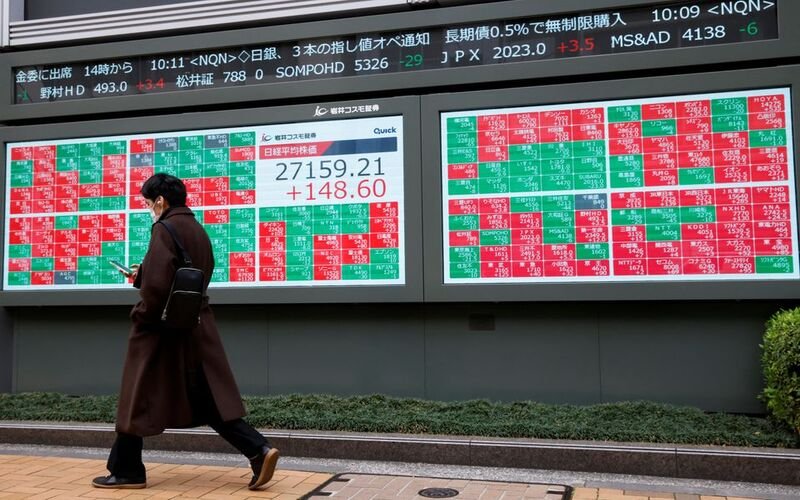On Wednesday, a new exchange-traded fund (ETF) that tracks Saudi stocks had its trading debut in Hong Kong. This ETF is the first product of its type in Asia, and it comes at a time when diplomatic relations between China and Saudi Arabia are warming up.
CSOP Asset Management, a company based in Hong Kong, manages the exchange-traded fund known as the CSOP Saudi Arabia ETF (2830. HK). According to a news release issued by CSOP, the Saudi sovereign wealth fund known as the Public Investment Fund (PIF) is considered an anchor investor in the company.
On its first trading day, the fund’s price increased by 0.9%, while the Hong Kong market index (.HSI) declined by more than 2%.
At a launch ceremony, Hong Kong Financial Secretary Paul Chan stated that the exchange-traded fund (ETF) makes it feasible for mass investors in our region of the world to invest and participate in the growth of the Saudi Arabian economy.
“We can expect to see more products made available in both the Hong Kong and Saudi markets for our respective investor bases.”
The fund is designed to replicate the performance of the FTSE Saudi Arabia Index, which had a total market value of $276.8 billion at the end of October and consisted of 56 members. According to a statement by the CSOP, the index has generated a return of 45.3% over the last three years.
Investors in Hong Kong will have the opportunity to trade Saudi equities, such as the oil giant Saudi Aramco (2222. SE) and the Saudi National Bank (1180. SE), in either Hong Kong dollars or Chinese yuan through the utilization of the exchange-traded fund (ETF).
We aim to continue enticing investors from other countries to participate in Saudi Arabia’s financial markets. Deputy Governor Yazeed A. Al-Humied of the Public Investment Fund (PIF) stated at the inaugural ceremony that the PIF will serve as the primary investor of this fund to demonstrate our commitment.
The financial institution HSBC, which provides the fund with services such as trusteeship and custodianship, stated that it anticipated the assets the fund is managing to exceed one billion dollars.
According to a story that Reuters published in August, the Hong Kong Stock Exchange (0388. HK) and a mainland bourse were engaged in separate discussions with the Saudi stock exchange over the possibility of establishing agreements that would enable investors from both entities to trade shares and bonds in the markets of the other.
Amidst China’s government’s frustration with what it perceives to be the weaponization of economic policies by the United States, the ETF comes at a time when China’s government has been seeking to develop its connections with nations in Europe, the Middle East, and Africa.
That diplomatic drive includes wooing Saudi Arabia, an ally of the United States.
Even though Beijing and Riyadh continue to base their economic cooperation on energy interests, the connections between the two countries have been growing in commerce, investment, and security. China is Saudi Arabia’s most important trading partner, with a total value of $87.3 billion in commerce in 2021.
Last month, the People’s Bank of China and the Saudi Central Bank inked a local currency swap agreement with a total value of 50 billion yuan, equivalent to $6.93 billion or 26 billion Saudi riyals. The purpose of this arrangement was to increase financial cooperation and to encourage trade and investment.


